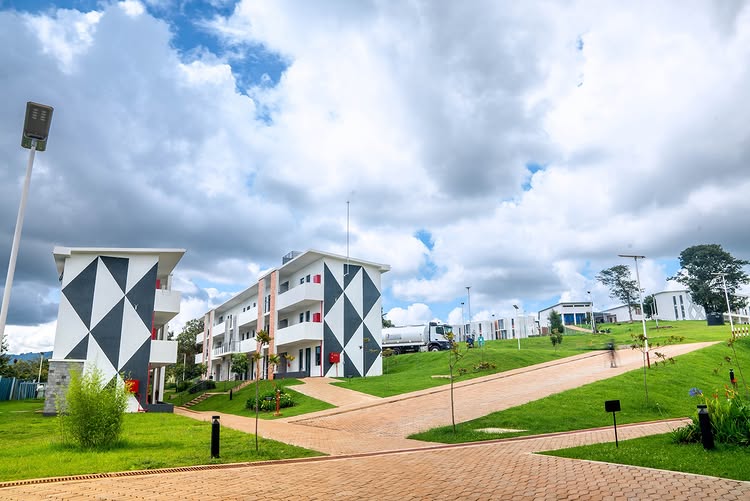Institute of Global Health Equity Research
November 19, 2024 2025-09-10 7:56Institute of Global Health Equity Research
Institute of Global Health Equity Research
Transform data into global Impact
At the forefront of global health, IGHER conducts innovative research to tackle the root causes of health disparities. By bridging research and practice, it ensures health interventions are effective, equitable, and accessible—especially for underserved populations.
IGHER is dedicated to advancing global health equity by harnessing the power of rigorous, multidisciplinary research and fostering an environment of academic excellence. The Iinstitute's mission is to bridge the gap between research and practice, ensuring that health interventions are not only effective but also equitable and accessible to all populations, particularly those who are underrepresented and underserved.
What We Do
The Education, Training, and Research Career Support
initiative aims to lead in innovative research education by building UGHE’s capacity and providing training to external scholars both regionally and globally. It focuses on developing programs such as the Training and Education Unit and the Research Hub, which offer mentorship, research design, and grant development, fostering a robust environment for research excellence.
The Clinical Research Enterprise
Focuses on conducting impactful clinical and translational research to improve care and inform policy, with a particular emphasis on partnerships for research on non-communicable diseases, trauma, and infectious diseases. The initiative includes establishing advanced research labs and a biobank to reduce reliance on external partners, and building clinical trial infrastructure to address health inequities, with progress contingent on securing funding.
The Population Health Research
Initiative supports community-based research and operates Rwanda’s first longitudinal Health Demographic Surveillance Site (HDSS) in Butaro. It collaborates with partners to study access to care, social determinants, and treatment outcomes, with plans to expand studies and advanced training programs in 2024 and beyond.
The Vaccine Technology Unit
Will establish a center for innovative vaccine research and development, focusing on mRNA, viral vector, and protein subunit vaccines. It aims to partner with global institutions to make vaccines affordable and accessible, particularly in low-resource settings, while developing a vaccinology training program that prioritizes vaccines for diseases like HIV/AIDS, malaria, and tuberculosis. Plans for capacity building will be launched in 2025.

Research Projects
- RADIC: Rehabilitation for all through Digital Innovation and Competencies (2023-2026)
- Strengthening Modelling and Analytics Capacity and Ecosystem for Womens’ Health Project: (2023-2026)
- Gestational diabetes and dyslipidemia in the Rwandan birth cohort – collaboration with Leipzig university department of epidemiology 2023 – 2024
- Effects of maternal nutrition during pregnancy on perinatal and child nutritional outcomes in Rwanda; a birth cohort study 2022-26.
- Healthy Aging, 2024-2026
- Dietary Changes for Hyperglycemia in Type 2 Diabetes, 2024-2025
- Clinical trials: UGHE is collaborating with the Center for Family Health Research (CFHR) to implement the HOPE II (HPV One and two dose Population Effectiveness) Study
Research Training
- Intermediate operational research training (IORT) (Annually)
- Mathematical modeling
- Precision medicine
- Implementation sciences
- Research methods and Proposal writing
- Clinical trial
- Study design and advanced data analysis
- Scientific writing
Research Event & Club
- Journal club (Monthly)
- Research day Event (Annually)
FAQs
1. Why is research important in addressing Global health indicators?
Research is critical for addressing Global Health Indicators. Research can help identify what the most appropriate and suitable indicators are in different contexts. Research is also essential for both systematically improving global health performance according to established indicators as well as being able to demonstrate through sound documented evidence what that improvement is.
2. What benefit is research to busy clinicians who are already under-resourced?
Research can provide essential information for working both more effectively and also more efficiently. Recipients of healthcare services have a right to expect the highest quality, most appropriate healthcare for the condition and the goals, preferences, and priorities they have.
3. Why isn't research having a greater impact?
Unfortunately, it appears to be the case that research impact is often not a high priority. Much greater emphasis needs to be given to research impact from the very earliest stages of research planning. Clinicians and other intended beneficiaries of the results of the research can provide invaluable insights and information into how research impact can be maximized.


